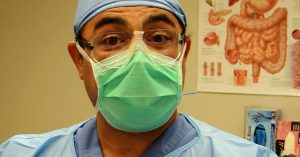
Costa Tropical Internet
Just another WordPress site
In a shocking revelation, a Biological Resource Center has been directed to pay a staggering $58 million to families whose loved ones’ body parts were sold for experimental purposes without their consent. The case has sent shockwaves through the scientific community, highlighting the ethical issues surrounding the handling and use of human tissues for research. Families who had entrusted the remains of their deceased relatives to the center, under the impression they would be used for medical and scientific education, were left stunned and appalled when they discovered the truth. The center had been profiting from the sale of these body parts to various organizations and institutions, including those in the automobile industry, where they were used in crash tests. The families’ distress was compounded by the degrading and disrespectful manner in which their loved ones’ remains were treated.
The ruling, issued by an Arizona jury, represents a significant victory for the families involved and sends a clear message to other institutions about the importance of respecting the rights and wishes of grieving families. The incident has sparked a renewed discussion about the need for stricter regulations and more transparency in the industry, to prevent such a devastating breach of trust from happening again. The families involved in the lawsuit had the courage to demand justice, not just for themselves, but for all families who entrust the remains of their loved ones to such centers, expecting them to be treated with dignity and respect. The ruling has been hailed as a step towards ensuring that the rights of individuals and their families are upheld, even after death. This case serves as a stark reminder to all institutions involved in the disposal and use of human tissues that they must operate with integrity, honesty, and respect for the wishes of the deceased and their families.

The recent uncovering of an unethical and clandestine trade in human body parts has provoked an upsurge of outrage and a clamor for justice from aggrieved families. The discovery of this horrific business has shone a light on the underbelly of black market organ sales, prompting a wave of anguish among relatives of deceased individuals whose remains have been exploited in this manner. They are demanding retribution for the inhumane treatment of their loved ones, along with urgent reforms to prevent future occurrences. As they grapple with the harrowing knowledge that their relatives’ bodies were not laid to rest as they believed, but instead were dismembered and sold, their grief is compounded by a sense of violation.
This shocking revelation has led to widespread calls for accountability, and a pressing need for more stringent regulatory measures in the handling of human remains. Many are calling for an end to the loopholes that allowed such an atrocious trade to flourish undetected. There is also a call for the creation of a more transparent system that ensures the respectful and dignified treatment of bodies post-mortem. The heartrending pleas from these families underscore the pressing urgency for the authorities to act swiftly and decisively. They must ensure that the perpetrators of this heinous act are brought to justice and that similar atrocities do not happen in the future. Only then can the grieving families begin to find closure and healing from this abhorrent incident.
In a shocking revelation, a Biological Resource Center came under intense scrutiny following accusations of misconduct related to the handling of donated human remains. Allegedly, the organization was engaging in the unscrupulous practice of profiting from these donations, exploiting the noble intentions of those who wished to contribute to scientific research and medical advancements. It has been claimed that the Center used these remains in a manner not in keeping with the donors’ original consent, resulting in significant monetary gain.
This unsettling news has caused a ripple of concern among potential donors, medical professionals, and the general public, prompting calls for greater transparency in the procedures involving body donations. Critics argue that this alleged misuse of donations tarnishes not only the reputation of the Biological Resource Center in question but also the broader scientific and medical research community. It raises important ethical questions, highlighting the need for stricter oversight and accountability.
Donors often choose to contribute their bodies to science with the hope of aiding humanity, fostering new discoveries, and creating a lasting legacy. They trust these organizations to respect their bodies and their wishes. Any breach of this trust is deeply troubling and damaging, eroding confidence in the system. The accusations against the Biological Resource Center serve as a stark reminder of the potential for misuse in this sector, underscoring the necessity of vigilant governance.
The public outcry following these allegations underscores the moral imperative for organizations dealing with human remains to operate with the utmost respect for donors’ wishes, stringent ethical standards, and transparency. This incident serves as a stark reminder of the potential pitfalls in this area of scientific research and emphasizes the need for robust regulatory measures to safeguard the integrity of body donation programs. As investigations continue into these allegations, there is a growing demand for clear, stringent guidelines and rigorous enforcement to ensure that such exploitation does not recur.

In a watershed turn of events, a protracted legal dispute culminated with a multi-million-dollar settlement for the aggrieved parties. The families of the victims, who had been seeking justice for their loved ones, were finally granted a considerable financial compensation. The battle in the court had been a grueling one, with years of persistence and patience. The opposing parties, armed with their respective attorneys, had been entrenched in a fierce combat of legal wits and strategic maneuvers.
The legal battle had garnered significant attention, not only due to the emotional toll it took on the families, but also due to the magnitude of the financial settlement involved. The decision made by the court was an unprecedented one, marking a significant victory for the victims’ families. The settlement money, while not capable of compensating for the irreplaceable loss of their loved ones, was seen as a form of tangible acknowledgment of their suffering.
The resolution, however, was not met without controversy. Critics argue that the size of the financial settlement sets a worrying precedent for future cases, potentially encouraging a culture of litigation. Meanwhile, supporters maintain that the outcome sends a powerful message to corporations that they cannot evade accountability for their actions.
Despite the polarizing opinions, the fact remains that the families of the victims, after enduring an exhausting legal ordeal, have received a significant financial resolution. Although this settlement does not erase the pain and loss they have experienced, it does provide them with a sense of closure and justice for their loved ones.
As the dust settles on this landmark case, the broader implications and potential precedents set by this multi-million-dollar settlement continue to be a topic of heated discussion among legal experts and observers. Regardless of the differing perspectives, this case will undoubtedly leave a lasting imprint on the annals of legal history.
The subject of regulatory oversight and ethical issues has been thrust into the spotlight following recent controversy. This contentious episode has brought to the fore the vital role of regulatory bodies in maintaining order, fairness, and accountability in various sectors and industries. When these entities fail to fulfill their obligations or when their guidelines are disregarded, it can lead to significant problems. Such situations not only disrupt operations, but they also raise serious ethical questions that demand immediate attention and resolution. The controversy has revealed gaps in the current regulatory framework, highlighting the need for stricter oversight and more stringent enforcement of established rules and standards. Ethical considerations, meanwhile, are thrown into sharp relief as the controversy exposes questionable practices and decisions.

These issues underscore the importance of a strong ethical foundation in all endeavors, whether in business, politics, or other areas of society. The controversy serves as a stark reminder of the potential consequences when regulatory oversight is lacking or when ethical boundaries are crossed. In response, many are calling for reforms to enhance regulatory practices and foster a stronger culture of ethics. Such measures would not only help prevent similar controversies in the future, but they would also contribute to the overall integrity and credibility of the sectors or industries involved. This controversy, while undoubtedly distressing, provides a valuable opportunity to reevaluate and strengthen regulatory and ethical standards, ultimately resulting in more responsible and transparent practices.
Medical research has been a cornerstone in the advancement of healthcare, leading to new treatments, diagnosis, and preventive measures for various diseases. However, in recent years, the ethical aspects associated with medical research have come under intense scrutiny, particularly the issue of donor consent standards. The crux of the issue is whether the individuals from whom tissues or biological samples are taken for research purposes are fully informed and have willingly given their consent. This concern arises from instances where samples have been used for purposes that the donor may not have been aware of or agreed to. The potential for misuse of biological samples, the lack of transparency, and the potential invasion of privacy all contribute to the debates around donor consent standards.
It has become clear that there is a need for a more robust system of obtaining and documenting consent to ensure the protection of donors’ rights. The complexities of consent extend to the sharing of genetic data, the potential for commercial use of samples, and the potential for identifying individuals from anonymized data. These issues call for a careful balance between the need for medical research and the respect for individual autonomy and privacy. As such, it is crucial for the medical research community to address these concerns and develop a more comprehensive and transparent process for obtaining donor consent. Such a process would need to ensure that donors are provided with enough information to make an informed decision about the use of their samples, and that their decision is respected and upheld.